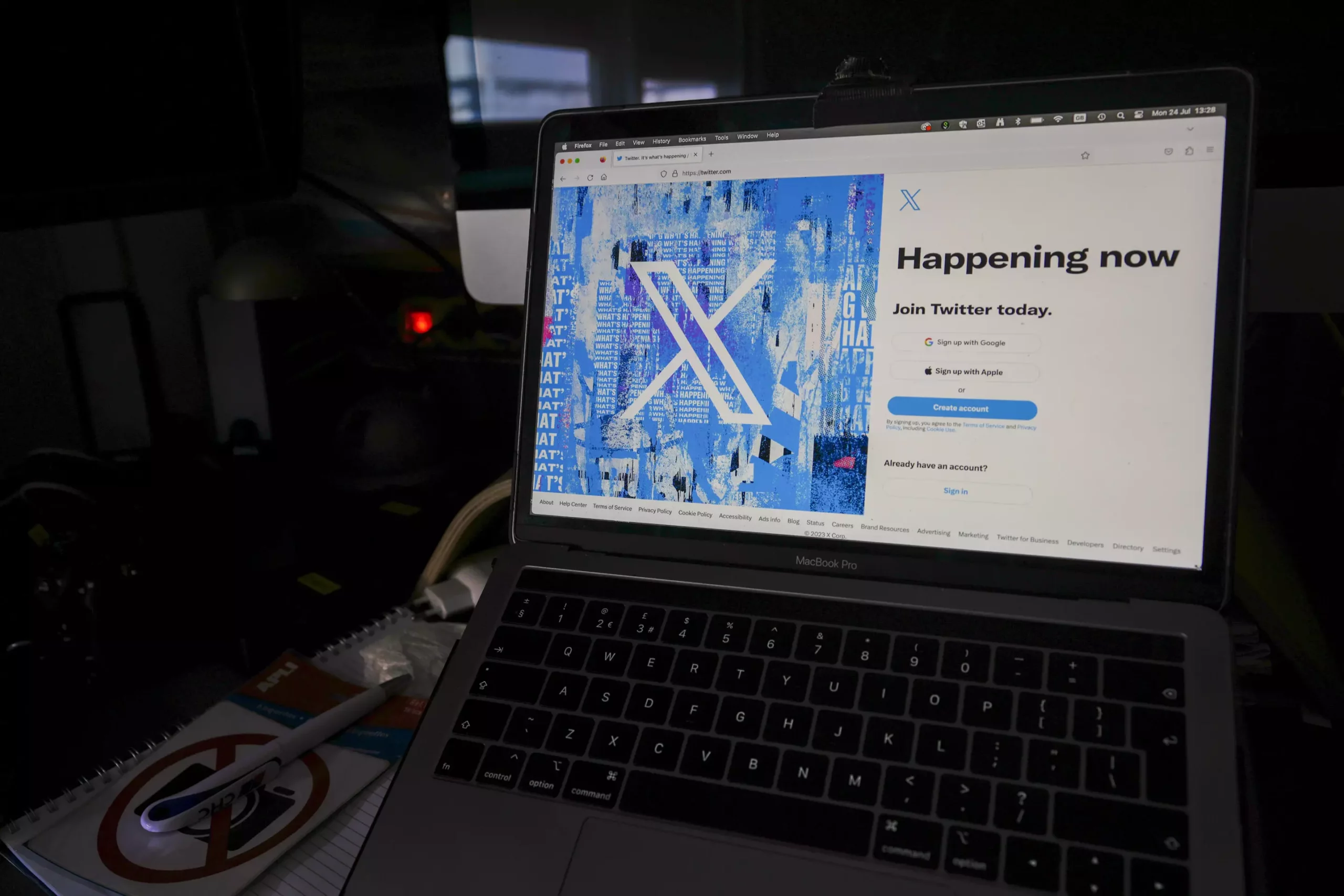In a continued showdown between international tech giants and local governance, Brazilian Supreme Court Justice Alexandre de Moraes has firmly positioned himself against Elon Musk’s social media platform, X, by placing additional conditions for its reinstatement in Brazil. For nearly a month, the platform has been blocked due to a series of clashes revolving around critical issues such as free speech, misinformation, and the presence of far-right ideologies. Musk’s efforts to comply with the court’s demands—such as appointing a legal representative—have not sufficed to lift the suspension entirely. The intricacies of this situation exemplify the power dynamics at play in an era where digital platforms collide with national regulatory frameworks.
De Moraes’s recent ruling sets a new precedent by stipulating that X may only resume services in Brazil if a separate, linked entity owned by Musk, Starlink, withdraws its appellate actions related to the case. This interconnection raises questions about how different organizations can be viewed under legal scrutiny, especially when they share ownership and operational interests. While legal experts have scrutinized this classification, it exemplifies the potential for one entity’s actions to influence another, further complicating corporate governance in a global context. The ruling underscores the challenges faced by multinational corporations in navigating varying legal landscapes and the implications for freedom of expression in the digital realm.
The financial ramifications of de Moraes’s ruling are significant. Beyond the suspended service, X now faces additional fines that have surpassed three million dollars. The imposition of a 10 million reais (approximately $1.84 million) fine, alongside penalties levied against the newly appointed legal representative for previous non-compliance, signals the court’s resolve to uphold its authority. In a legal environment where businesses often prioritize rapid global service launches, adhering to local mandates becomes even more paramount. X’s previous failure to maintain a legal representative in Brazil proved detrimental, triggering legal actions that highlight the necessity for accountability in all jurisdictions where a company operates.
Underlying this tangled web of legalities is the broader issue of free speech versus the dissemination of misinformation. X’s claim of censorship has drawn considerable support from Musk’s followers, who perceive the legal measures as authoritarian. Yet, this characterization glosses over the complexities involved; Brazil has implemented stricter regulations on online content dissemination compared to more permissive environments like the United States. What constitutes the line between promoting free expression and curbing harmful misinformation remains a contentious subject. As digital platforms like X play an increasingly prominent role in shaping public discourse, their responsibility extends to ensuring that the content disseminated aligns with legal and ethical standards socioculturally relevant to each nation.
This ongoing drama serves as a potent reminder not only of the judiciary’s role in regulating corporate behavior but also of the responsibilities that come with wielding significant influence over public communication. For companies like X, operating globally demands a balance between innovation and adherence to regional laws. The legal turmoil experienced in Brazil may prompt re-evaluation of strategies concerning compliance, governance, and the manner in which they interact with authorities.
The relationship between law enforcement and social media platforms is a microcosm of larger societal debates. The ruling by de Moraes could reshape how tech companies engage with militants and activists attempting to manipulate platforms for nefarious purposes while also championing free speech.
As this situation unfolds, the future of X in Brazil hangs in the balance. The consequences of how this foreign enterprise navigates Brazilian law will resonate beyond its operations, potentially influencing other governments’ interactions with technology giants. Compromise and proactive engagement with legal standards may be instrumental in securing a sustainable digital ecosystem that upholds free speech while constraining harmful content. Hence, the developments in Brazil serve as a crucial case study for other nations grappling with similar dilemmas, marking a potentially transformative moment in the ongoing evolution of digital governance.

